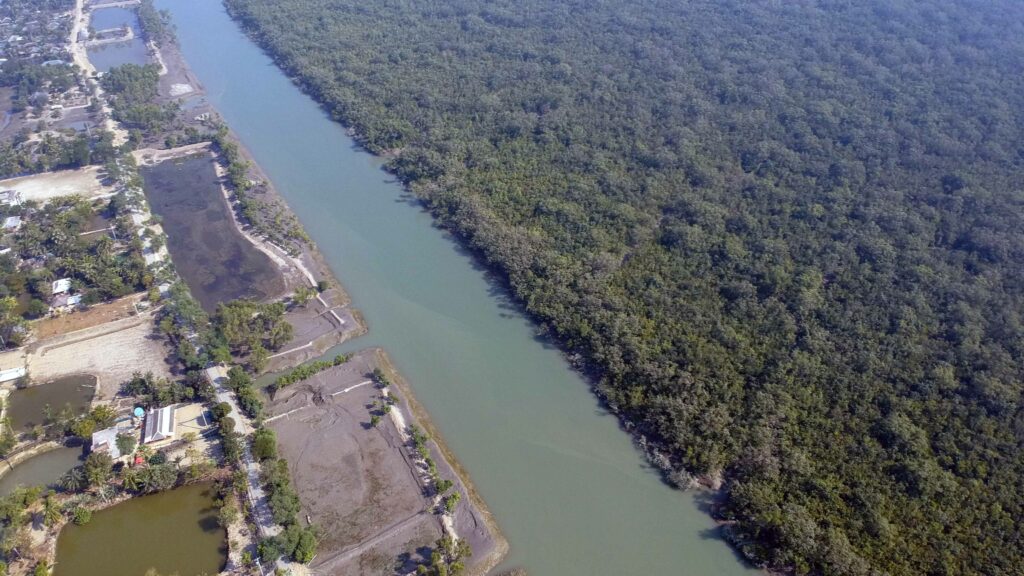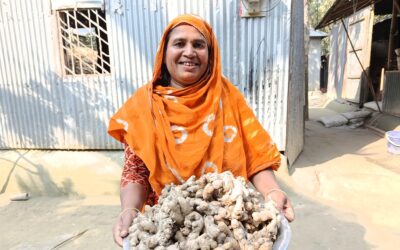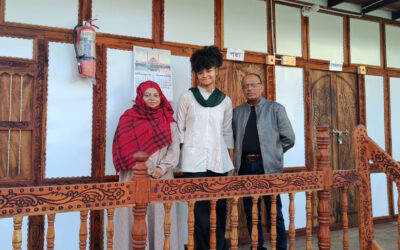An overview of Friendship’s contribution to conserving biodiversity for climate action and sustainable development ahead of CBD COP16.
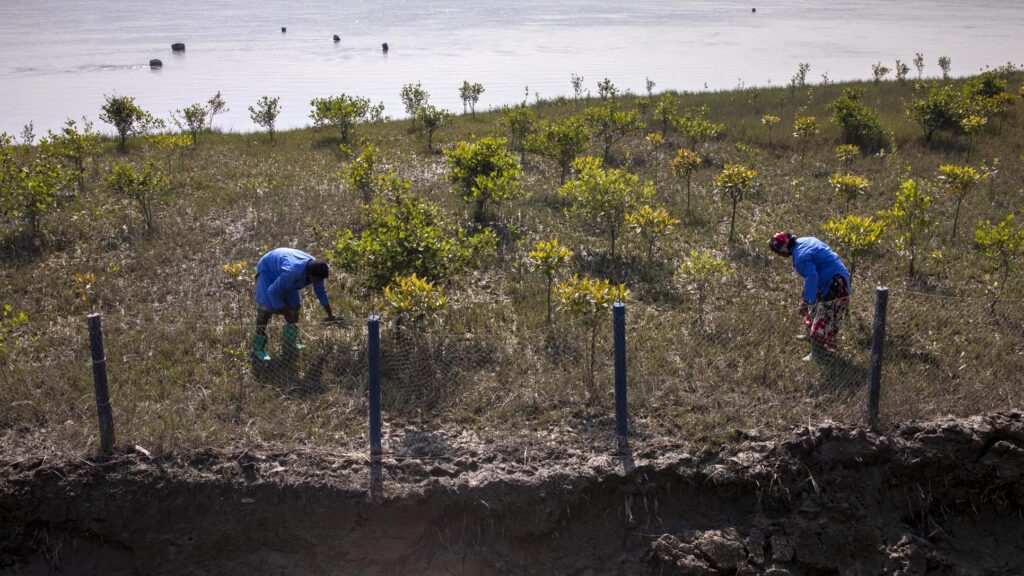
by Kazi Amdadul Hoque,
October 20, 2024
Since its inception, Friendship has worked in partnership with the Government of Bangladesh (GoB), various NGOs, development partners, and the private sector. It focuses on adaptation and mitigation activities, utilising participatory, integrated, and inclusive approaches to support the government’s commitments. Friendship operates across six key sectors: Health, Education, Climate Action, Inclusive Citizenship, Sustainable Economic Development, and Cultural Preservation.
As part of its commitment to biodiversity conservation and ecosystem enhancement, Friendship has led a large-scale mangrove plantation project. The organisation has planted over 600,000 trees, covering an area of 200 hectares in Assasuni and Shymnagar Upazila, Satkhira District of Bangladesh, and established the largest privately-owned mangrove nursery in Bangladesh. Friendship has created 12 nurseries, each containing 40,000-50,000 saplings. This mangrove plantation initiative started in 2018 thanks to the valuable support and trust of the Ministry of Environment, Climate and Biodiversity of the Grand-Duchy of Luxembourg. Since then, it has involved 142 local communities, directly benefiting 4,260 individuals and indirectly impacting 82,109 residents of climate-vulnerable coastal villages.
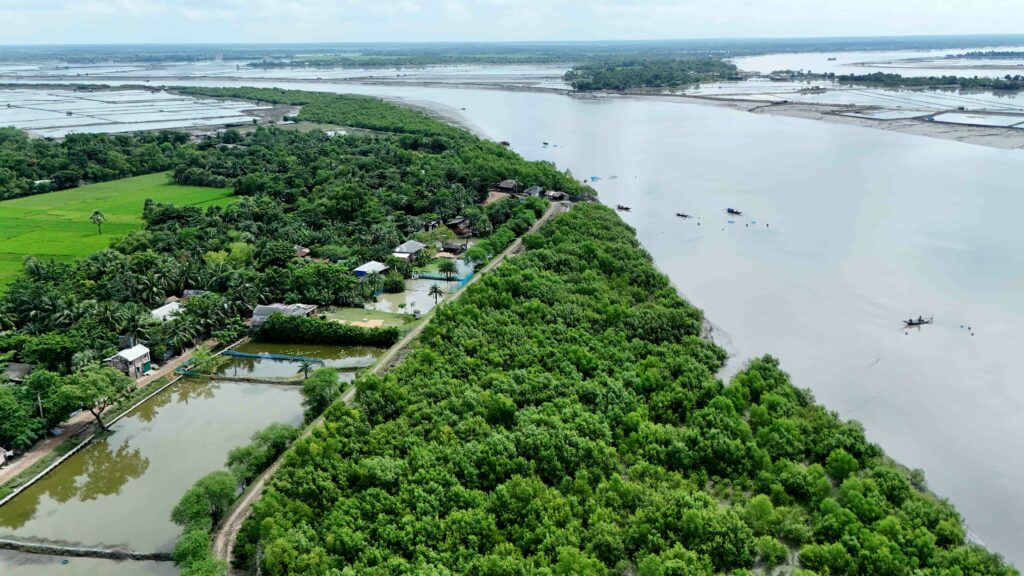
Friendship’s mangrove plantation project complies with the IUCN Global Standard for Nature-based Solutions (NbS), ensuring that nature-based projects provide measurable benefits to biodiversity and society, a key goal for climate change adaptation under Bangladesh’s National Adaptation Plan (NAP 2050). The initiative aims to reduce pressure on the Sundarbans through reforestation, improve ecological balance, reduce carbon dioxide in the atmosphere, and enhance the livelihoods of climate-affected populations by creating employment opportunities.
In 2022, Bangladesh and other major nations adopted the Kunming-Montreal Global Biodiversity Framework. The country is also a signatory to the Convention on Biological Diversity (CBD) of 1992. The Government of Bangladesh is setting targets to realise the goals of the Kunming-Montreal Global Biodiversity Framework. Collaborative efforts from community members, local governments, and NGOs are essential in this regard.
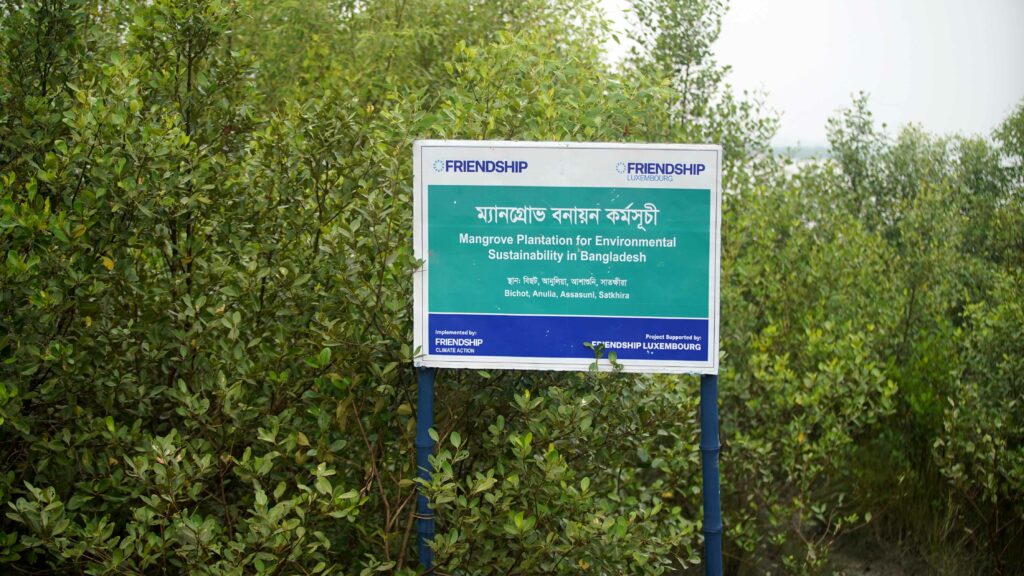
Friendship, alongside other organisations, has contributed to shaping this framework and is already implementing its mangrove plantation project in alignment with the framework, complementing the government’s global commitments.
Friendship’s mangrove plantation project directly supports three United Nations Sustainable Development Goals (SDGs): Goal 13 (Climate Action), Goal 14 (Life below Water), and Goal 15 (Life on Land). The project also contributes to several other SDGs, such as reducing poverty (Goal 1) by providing alternative livelihoods, empowering women through leadership roles in mangrove management (Goal 5), creating sustainable employment in climate-resilient agriculture and conservation (Goal 8), and promoting responsible production through organic farming and resource efficiency (Goal 12).
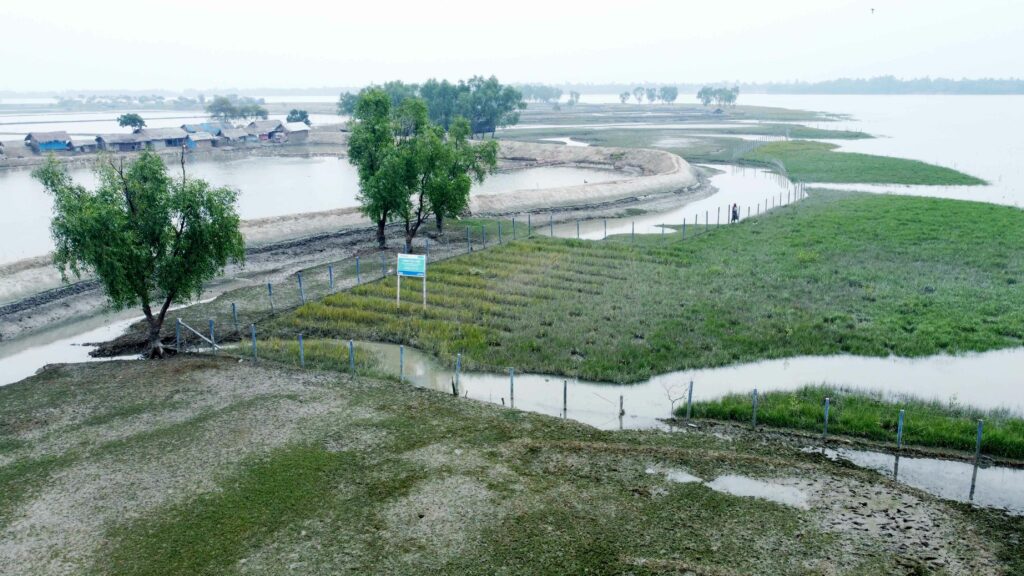
The initiative aligns with the Bangladesh Climate Change Strategy and Action Plan (BCCSAP), specifically Theme 5, which emphasises mitigation and low-carbon development through afforestation and reforestation. Mangrove plantation also aligns with the National Adaptation Plan and the National Adaptation Programme of Action (NAPA) of 2009, which highlights afforestation and reforestation as strategies for reducing the impacts of climate-induced natural disasters and improving community livelihoods.
The mangrove plantations are already showing promising results in restoring biodiversity. As the mangroves grow, they provide vital habitats for aquatic life, including fish, mussels, and crabs, which are now being observed returning to these areas. This ecosystem restoration is also attracting a variety of bird species, further enriching the biodiversity of the region. The return of these wildlife species signals a positive trajectory in ecological recovery, contributing to the overall resilience of the region against climate change.
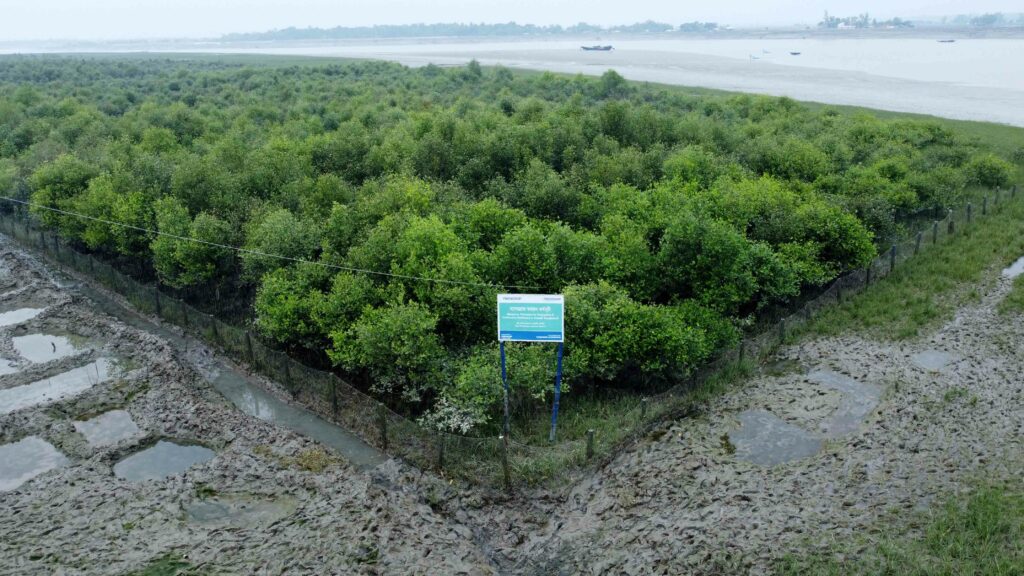
As Friendship continues to expand its mangrove plantation efforts, it aims to cover more vulnerable coastal areas. Future plantation projects will integrate GPS tracking and satellite monitoring to ensure the sustainability of the plantations. This technology will enable the organisation to monitor tree growth, carbon sequestration rates, and overall ecosystem health.
Friendship’s innovative approach to biodiversity conservation and climate resilience through its mangrove plantation initiative has gained international recognition. The project’s alignment with global frameworks and its focus on community-driven, nature-based solutions have positioned it as a model for similar efforts worldwide. The project was selected as one of the top 20 Forest Landscape Restoration (FLR) practices in the Asia-Pacific region by the International Union for Conservation of Nature (IUCN), due to its scalability, community involvement, and contribution to ecosystem restoration and climate adaptation.
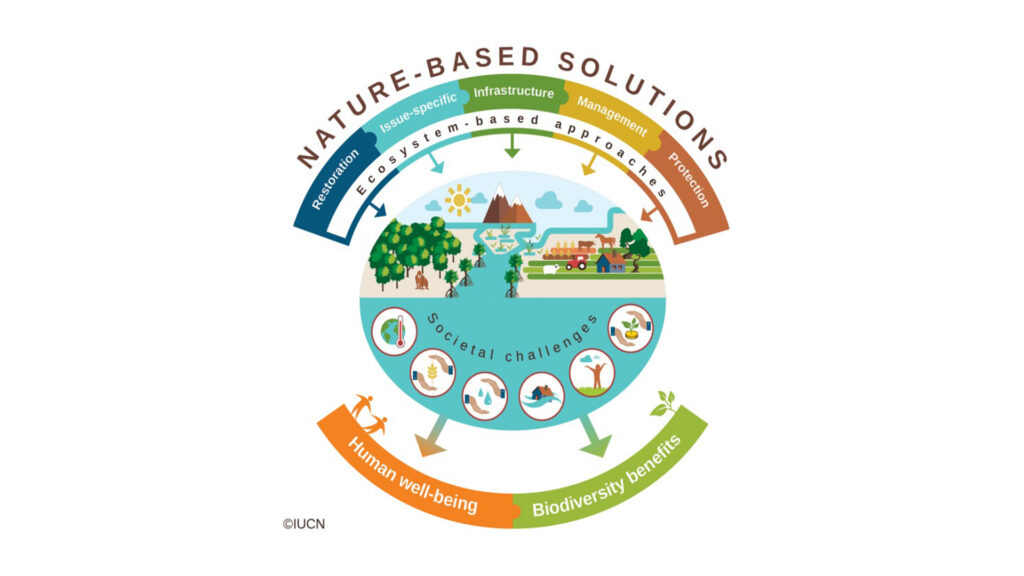
Friendship was also one of 12 organisations recognised by the World Economic Forum’s Blue Carbon Challenge, an initiative promoting the conservation and restoration of coastal and aquatic ecosystems. This prestigious award highlights the organisation’s role in advancing blue carbon ecosystems, crucial for carbon sequestration and climate change mitigation.
Friendship’s work has been included as implementing partner in “The Great People’s Forest of the Eastern Himalayas,” lately renamed “Mountains to Mangroves,” an initiative spearheaded by the Balipara Foundation and Conservation International, further emphasising the project’s alignment with international environmental standards.
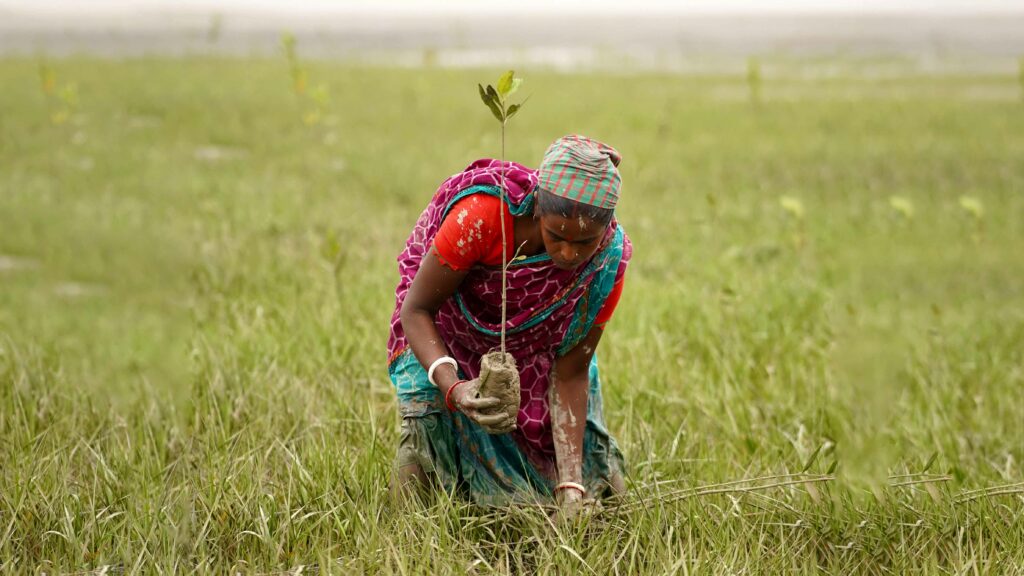
Friendship’s initiatives have made a significant impact on the lives and livelihoods of local communities and contribute meaningfully to the global and national commitments of the Government of Bangladesh. The social purpose organisation also engages in advocacy and capacity building with communities and stakeholders to promote biodiversity and establish sustainable, nature-centric practices that benefit ecosystems as a whole.
